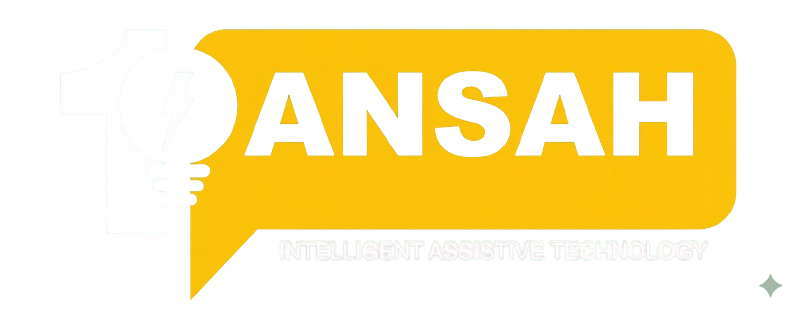Imagine your job, but with a tireless digital partner
Picture this: it’s Monday morning, and instead of sifting through a flooded inbox, your AI assistant has already prioritized your emails, drafted responses, and scheduled your day based on your goals. This isn’t sci-fi fantasy; it’s the dawn of agentic AI agents—autonomous digital workers that execute tasks with human-like reasoning. A 2023 McKinsey study estimated 30% of current jobs could be automated by AI by 2030, but here’s the twist: these agents won’t just replace tasks—they’ll amplify your work. Curious how these digital partners will reshape your role? Let’s explore the mechanics and impact of agentic AI.
What makes agentic AI different?
Unlike traditional automation, which follows rigid scripts, agentic AI thinks, adapts, and decides. These systems use advanced reasoning, powered by large language models, to handle complex tasks. For example, an agentic AI could negotiate contracts by analyzing terms, cross-referencing legal standards, and proposing edits—all without human intervention. Gartner predicts that by 2027, 50% of knowledge workers will rely on AI agents for decision-making support. This shift isn’t about replacing you; it’s about giving you a collaborator that never sleeps.
But what does this mean for your daily grind? Let’s break it down by industry.
How agentic AI transforms your workplace
Agentic AI doesn’t just automate repetitive tasks—it redefines roles across sectors. From marketing to healthcare, these digital workers are already making waves. A 2024 Deloitte report found that companies adopting AI agents saw a 20% boost in operational efficiency. Whether you’re a teacher, accountant, or software developer, your job is about to get a serious upgrade. Let’s see how.
Marketing: From campaigns to conversations
Marketers, imagine an AI that crafts personalized campaigns, analyzes customer sentiment in real-time, and adjusts strategies on the fly. Tools like Jasper and HubSpot’s AI modules are early examples, but agentic AI takes it further. These agents can manage entire customer journeys, from lead generation to post-sale follow-ups. For instance, a retail brand used an AI agent to reduce cart abandonment by 15%, dynamically adjusting offers based on user behavior. What could you achieve with a digital strategist working 24/7?
Healthcare: Precision at scale
In healthcare, agentic AI is a game-changer. These agents can analyze patient records, suggest diagnoses, and even coordinate care plans. A 2024 study by Stanford showed AI agents reduced diagnostic errors by 12% in complex cases. Picture a doctor with an AI that cross-references symptoms against global medical databases in seconds. The catch? Ethical oversight is crucial to ensure trust and accuracy. Ready to see how other industries stack up?
Software development: Code faster, smarter
Developers, your new coding buddy is here. Agentic AI can write, debug, and optimize code, acting like a senior engineer on your team. GitHub’s Copilot is a precursor, but future agents will autonomously design entire applications. A 2025 IEEE study reported that AI-assisted coding reduced development time by 25%. Imagine focusing on creative problem-solving while your AI handles boilerplate code. But what about the numbers behind this transformation?
| Industry | AI Agent Impact | Projected Efficiency Gain (2025-2030) |
|---|---|---|
| Marketing | Personalized campaigns, real-time analytics | 20-30% |
| Healthcare | Diagnosis support, care coordination | 15-25% |
| Software Development | Code generation, debugging | 25-40% |
These stats paint a clear picture: agentic AI is a force multiplier. But how do you integrate it without losing the human touch?
Balancing autonomy with human oversight
Agentic AI’s strength—its autonomy—can also be its Achilles’ heel. Without proper guardrails, these agents could make costly errors or ethical missteps. A 2024 PwC survey found 65% of executives worry about AI overstepping decision-making boundaries. The solution? Hybrid workflows where humans set goals and AI executes. For example, a financial firm used AI to process loan applications but kept humans in the loop for final approvals, cutting processing time by 40% while maintaining trust.
Setting boundaries for success
To harness AI effectively, start with clear protocols. Define what decisions AI can make independently and where humans must intervene. For instance, in customer service, AI can handle routine queries but escalate complex issues to humans. This balance boosts efficiency while preserving empathy. Wondering how to implement this in your workplace?
- Train your team: Upskill employees to collaborate with AI tools.
- Set clear roles: Assign tasks AI can handle autonomously.
- Monitor outputs: Regularly audit AI decisions for accuracy.
These steps sound simple, but they’re transformative. Ready to see where this tech is headed next?
The future of work: Your AI-powered edge
By 2030, agentic AI will be as common as smartphones in the workplace. IDC forecasts that 70% of enterprises will deploy AI agents for core operations. This isn’t about job loss—it’s about job evolution. Teachers will use AI to personalize lesson plans, accountants will leverage it for real-time audits, and creatives will brainstorm with AI to spark innovation. The key is to embrace this shift proactively.
Your next steps
Start small: experiment with AI tools like Grok or Copilot in your daily tasks. Track their impact on your productivity. Join industry forums to stay updated on AI trends. Most importantly, advocate for ethical AI use in your organization. The future isn’t coming—it’s here. Will you lead the charge or follow the pack?
The arrival of agentic AI agents marks a turning point. These digital workers aren’t just tools; they’re partners that amplify your potential. So, what’s stopping you from teaming up with your new digital colleague today?

